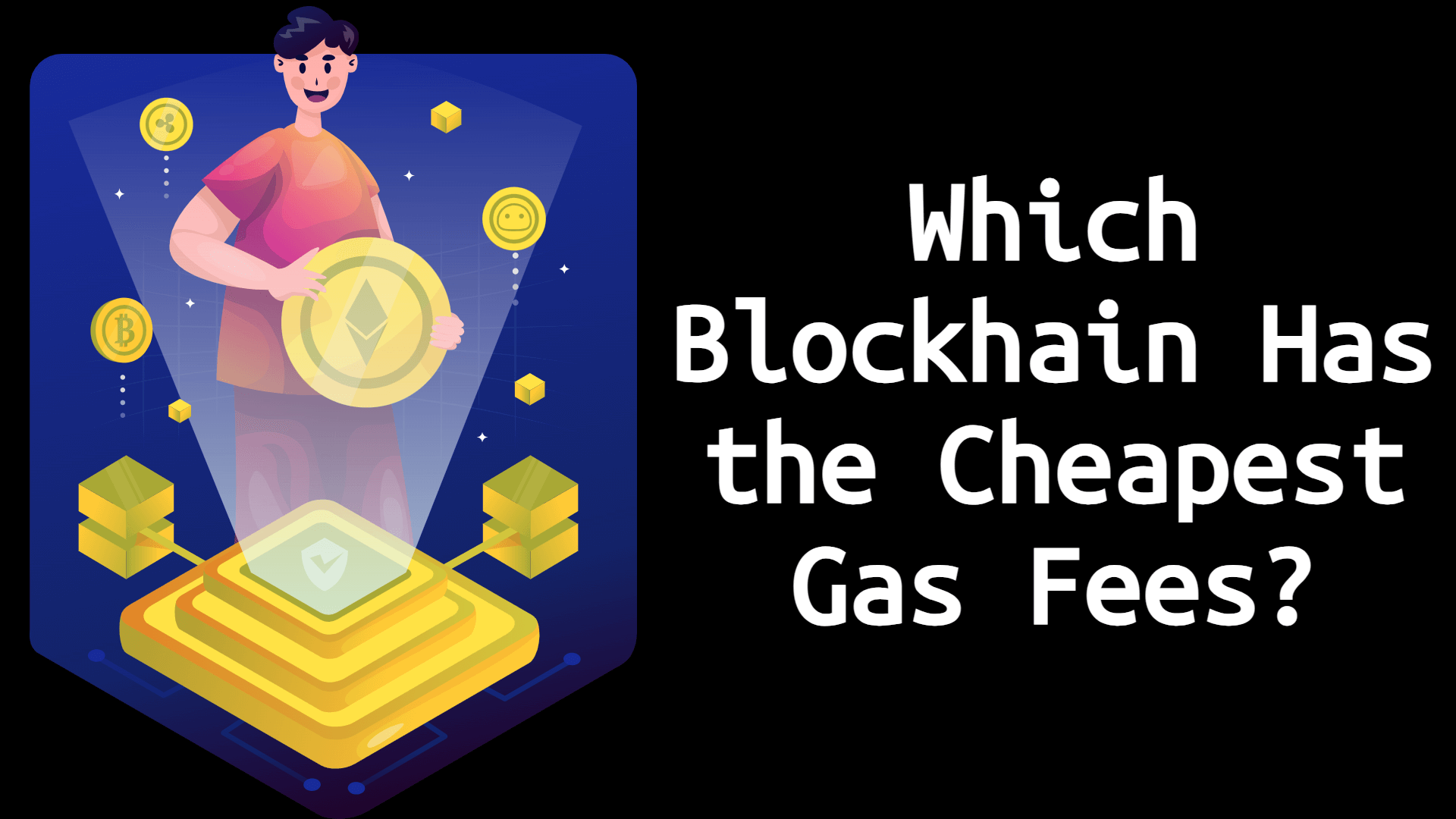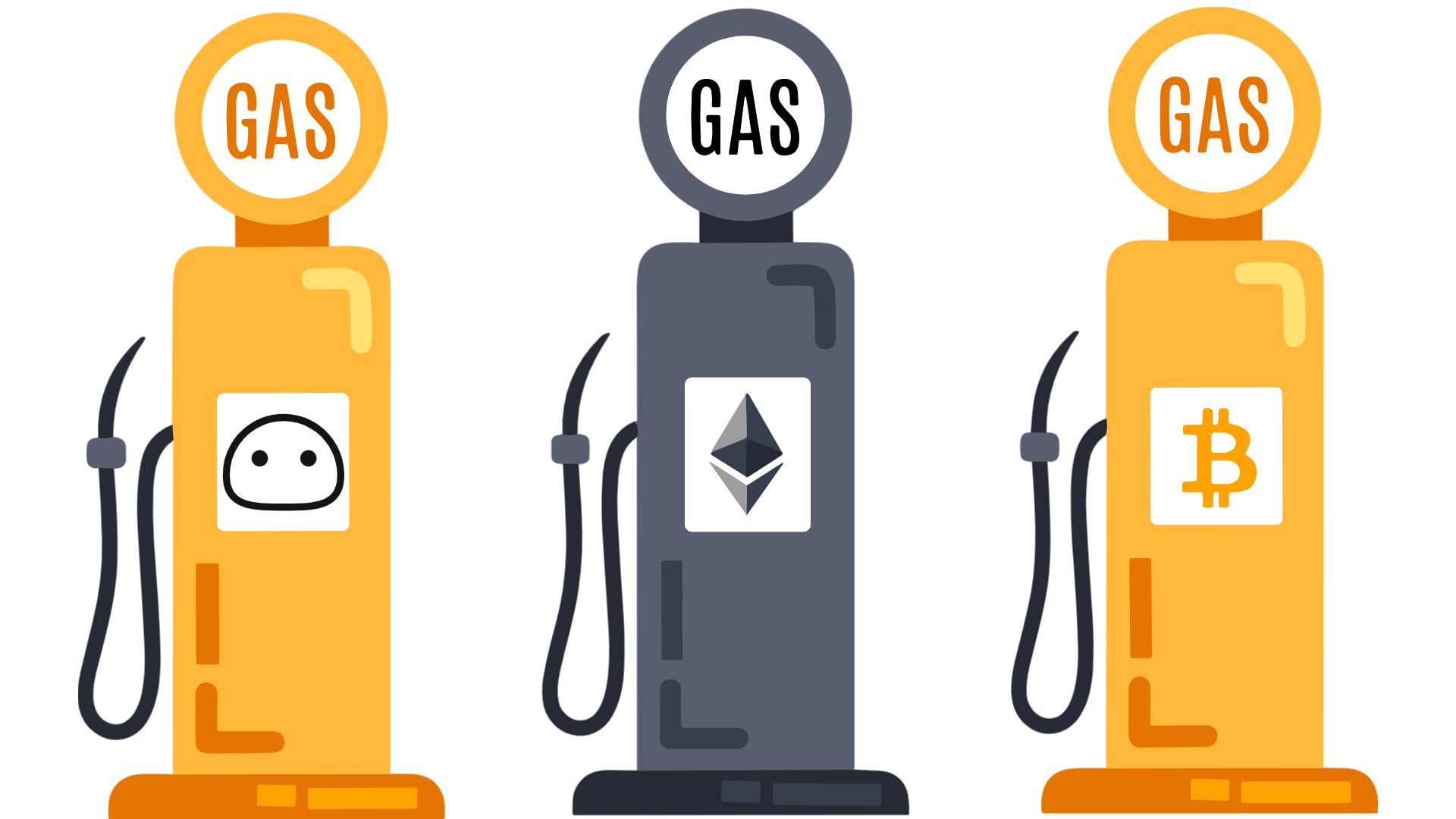Which Blockchain has the Cheapest Gas Fees?
In the world of blockchain technology, gas fees are a crucial factor for users and developers alike. These fees, paid to process transactions, can vary significantly across different blockchain networks. Understanding which chain has the cheapest gas fees can help you optimize your transactions and keep costs low. What Are

In the world of blockchain technology, gas fees are a crucial factor for users and developers alike. These fees, paid to process transactions, can vary significantly across different blockchain networks. Understanding which chain has the cheapest gas fees can help you optimize your transactions and keep costs low.
What Are Gas Fees?
Gas fees are the costs required to execute transactions and smart contracts on a blockchain. They compensate miners or validators for their computational resources used to process and validate transactions, ensuring the network remains secure and efficient.
Factors Influencing Gas Fees
Several factors impact gas fees across different blockchain networks:
- Network Congestion: High demand for transaction processing can lead to increased fees.
- Transaction Complexity: More complex transactions require higher fees.
- Blockchain Protocols: Different blockchains have unique fee structures and mechanisms for calculating gas fees.
- Supply and Demand Dynamics: Fluctuations in transaction volume can spike fees during periods of high demand.
Ethereum: Popular but Pricey
Ethereum is a powerhouse in the blockchain world, especially for smart contracts. However, its gas fees can be astronomical, especially during peak times. Ethereum uses a Proof of Work (PoW) consensus mechanism, which is resource-intensive. Despite its scalability upgrades like Ethereum 2.0, which transitions to Proof of Stake (PoS), the fees can still be a pain for many users and developers.

Binance Smart Chain: A Budget-Friendly Option
Binance Smart Chain (BSC) is often touted as a cheaper alternative to Ethereum. With its dual-chain architecture and Proof of Staked Authority (PoSA) consensus mechanism, BSC offers lower gas fees and faster transactions, making it a go-to for cost-conscious users. Transactions on BSC are generally processed within a few seconds, providing a balance between speed and affordability.
Polygon: Layer 2 Magic
Polygon, formerly known as Matic Network, is a Layer 2 solution that helps offload transactions from Ethereum, drastically cutting down on gas fees. By processing transactions off-chain and then finalizing them on the Ethereum mainnet, Polygon can offer very low fees while maintaining compatibility with Ethereum’s ecosystem. Transactions on Polygon are completed in under two seconds on average.
Solana: Speed and Savings
Solana is designed for high throughput and low fees, using a unique Proof of History (PoH) consensus mechanism. It can process thousands of transactions per second (TPS), making it one of the fastest blockchains in operation. Solana's low fees and quick transaction speeds make it an attractive option for users needing to process a large volume of transactions efficiently and cost-effectively.

Avalanche: Efficiency Meets Economy
Avalanche is gaining attention for its low fees and high transaction speeds. Its Avalanche consensus protocol allows the network to process transactions with rapid finality, usually within seconds, while keeping costs low. Avalanche's innovative approach to consensus helps achieve both scalability and affordability.
Cardano: Cost-Effective and Scalable
Cardano uses the Ouroboros Proof of Stake (PoS) consensus mechanism to offer lower gas fees compared to Ethereum. Cardano emphasizes security and scalability, processing transactions efficiently and at a lower cost. Its layered architecture also allows for future enhancements without disrupting the network.
Polkadot: Interoperable and Inexpensive
Polkadot’s Nominated Proof of Stake (NPoS) consensus mechanism ensures efficient transaction processing and low fees. It also enables multiple blockchains to connect and communicate seamlessly, enhancing interoperability. Polkadot’s architecture allows for scalable and economical transactions across its ecosystem.
Bitcoin: The Original but Expensive
Bitcoin, the first and most well-known blockchain, uses a Proof of Work (PoW) consensus mechanism similar to Ethereum’s original setup. While Bitcoin is renowned for its security and decentralization, it is often criticized for its high transaction fees and slower speeds, averaging about 10 minutes per transaction. These factors make it less ideal for everyday transactions compared to newer blockchains.
MO Chain: A New Era with Minimal Fees
MO Chain is an emerging blockchain that utilizes a unique Proof of Real Work (PoRW) consensus mechanism. This innovative approach allows MO Blockchain to offer extremely low gas fees, as cheap as $0.0000001 per transaction. MO Blockchain balances network security with user rewards, providing a cost-effective and efficient blockchain experience. It also integrates Delegate Proof of Stake (DPoS) for network security, ensuring a fair and balanced ecosystem.

Comparing Gas Fees Across Blockchains
When it comes to gas fees, it's important to compare different blockchains. Here's how they stack up:
| Blockchain | Average Gas Fee | Transaction Speed | Consensus Mechanism |
|---|---|---|---|
| Ethereum | High (Varies) | ~13 seconds per block | Proof of Work (PoW) / PoS |
| Binance Smart Chain | Low | ~3 seconds per block | Proof of Staked Authority (PoSA) |
| Polygon | Very Low (Layer 2) | <2 seconds | PoS |
| Solana | Very Low | ~400 ms per block | Proof of History (PoH) |
| Avalanche | Low | <2 seconds | Avalanche Consensus |
| Cardano | Low | ~20 seconds per block | Proof of Stake (PoS) |
| Tezos | Low | ~1 minute per block | Proof of Stake (PoS) |
| Polkadot | Low | ~6 seconds per block | Nominated Proof of Stake (NPoS) |
| Algorand | Very Low | ~4.5 seconds per block | Pure Proof of Stake (PPoS) |
| Bitcoin | High | ~10 minutes per block | Proof of Work (PoW) |
| MO Chain | Extremely Low ($0.0000001) | <3 seconds per transaction | Proof of Real Work (PoRW) |
Choosing the Right Blockchain for Low Gas Fees
Selecting the right blockchain for low gas fees isn't a one-size-fits-all decision. Here are some considerations:
- Transaction Volume: High-volume transactions benefit from the lowest fees, like those on Solana or MO Blockchain.
- Smart Contract Needs: If smart contracts are essential, Binance Smart Chain and Polygon offer a good balance of low fees and robust features.
- Interoperability: For cross-chain compatibility, Polkadot provides low fees with seamless interoperability.
- Security and Decentralization: Cardano and Tezos are known for their secure and decentralized architectures with relatively low fees.
Real-World Applications and Use Cases
Understanding which chain has the cheapest gas fees is essential for practical applications:
- Decentralized Finance (DeFi): Lower fees make trading, lending, and staking more cost-effective.
- Non-Fungible Tokens (NFTs): Affordable gas fees are crucial for minting and trading NFTs, making platforms like Polygon and MO Blockchain attractive.
- Supply Chain Management: Blockchains like Algorand optimize supply chain tracking and reduce operational costs.
- Gaming: Blockchain-based gaming benefits from low transaction costs, enhancing user experience and enabling microtransactions.

Future Trends in Gas Fees
Looking ahead, several trends could influence gas fees:
- Layer 2 Solutions: These are expected to reduce congestion and lower fees on primary blockchains.
- Sharding: Techniques like those being developed for Ethereum 2.0 will enhance scalability and reduce fees.
- Consensus Mechanism Innovations: Emerging mechanisms like Avalanche and MO promise more efficient transaction processing and lower costs.
- Protocol Upgrades: Continuous improvements will aim to enhance efficiency and cut transaction costs.
Conclusion: Which Chain Has the Cheapest Gas Fees?
So, which chain has the cheapest gas fees? While there's no one-size-fits-all answer, Solana, Polygon, Binance Smart Chain, and especially MO Blockchain consistently offer low fees. MO Blockchain, with its groundbreaking Proof of Real Work mechanism, stands out with gas fees as low as $0.0000001, making it a revolutionary option for cost-conscious users and developers.



